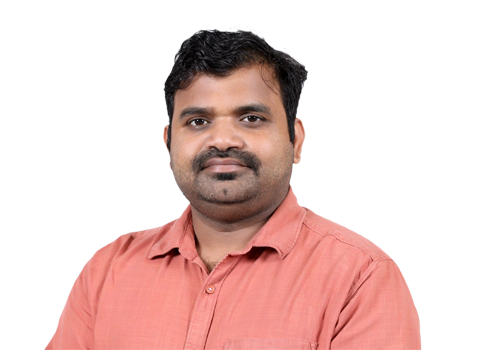Dr. Pavan Kumar was selected as a Fellow for the South Asian Futures Fellowship Programme 2023 hosted by the Council for Strategic and Defense Research (CSDR), New Delhi, India

Dr. Pavan Kumar is a scholar of International Relations and Indian Politics. He earned his PhD from the Centre for International Politics, Organisation, and Disarmament, Jawaharlal Nehru University. His PhD examined Vallabhbhai Patel’s Approach to India’s Foreign Policy. His MPhil thesis ‘Morality in International Politics’ compared the moral world views of Niccolo Machiavelli and Immanuel Kant.
He has taught BA, MA, and M.Phil. courses at Jawaharlal Nehru University, Janki Devi Memorial College, University of Delhi, and Mumbai University. In his teaching career of more than eight years, he has taught courses on Theories of International Relations, World Politics, India’s Foreign Policy, Indian Political Economy, Constitutional Government and Democracy in India, Political Process in India, Gandhi, Ambedkar, Indian Political Thought, and Western Political Philosophy. He has also worked as a research consultant at the Institute of South Asian Studies, National University of Singapore. At ISAS, he assisted Professor C Raja Mohan in his research projects. His research interests include India’s foreign policy, Vallabhbhai Patel, Indian politics, caste, and gender in International Relations.
Theories of International Relations, India’s Foreign Policy, Vallabhbhai Patel, Machiavelli, Jawaharlal Nehru, Caste and International Relations, Gender and Indian IR, Indian Politics, Media and Society
I've used student feedback to improve my teaching for almost a decade. Student input is crucial to teaching. When I started teaching postgraduate students in 2014, I usually held interactive lectures where students studied the book ahead of time and I led the conversation around the main points. I continued this with my PG students because it worked well for myself and them. I simplified the reading's main points for students when needed. Thus, my PG job was facilitator and teacher. M.Phil. teaching presented new challenges. Students were more knowledgeable and had different classroom expectations this time. We extensively discussed the prescribed reading and related literature and thoughts. We also discussed producing good articles and learning from others. I guided and assisted M.Phil. students. These students taught me a lot.
BA students were the hardest. Simplifying for kids was the hardest. Few read the assigned topic. For each syllabus unit, I had to create a background. Once the background was ready, I could run classes smoothly with lots of discussion. I focused on simplifying things for young minds.
I valued student feedback. My teaching technique changes as needed. No formula fits everybody. I've learned that building rapport with new pupils is the key to excellent classroom instruction. You can always raise your class once you create rapport with them and they feel confident in your class. Building confidence in the classroom helped me to communicate with them better, which improved student communication.
I regularly assess students. This lets me track student development and address common faults. Technology also keeps lectures interesting. I show films and documentaries to keep the class lively. I teach with blackboards and PPTs. I would like to maintain this strategy with necessary changes after student input.
- Media, Politics and Society
- Indian Politics and Democracy
- Introduction to World Politics
- Theories of International Relations
- Introduction to International relations
- Introduction to IR and India’s Foreign Policy
- Politics of Globalization
- United Nations and Global Conflict
- India’s Foreign Policy in a Globalising World
- Constitutional Government and Democracy in India
- Political Process in India
- Gandhi and the contemporary world
- Understanding Gandhi
- Understanding Ambedkar
- Classical Political Philosophy
- Modern Indian Political Thought
- Legislative Practices
- Democracy and Governance
- Concepts and issues in Indian Politics
- Culture, norm and identity in world politics
- Politics, Economy and Society in India
- Democracy, state and Media
- Indian Politics, Economy and Society
- Junior Research Fellowship (JRF), SRF in International Relations and Area Studies, from University Grants Commission (UGC), New Delhi in December 2012.
- ISA travel grant for ISA Annual Convention 2022.
- National Eligibility Test (NET-UGC) in International Relations and Area Studies.
- National Eligibility Test (NET-UGC) in Defense and Strategic Studies, MAY 2013.
- National Eligibility Test (NET-UGC) in Political Science, June 2014.
He has published widely on India’s foreign policy and Indian politics in peer-reviewed journals of the discipline. His research papers and reviews have appeared in Strategic Analysis, International Studies, International Affairs, Millennial Asia: An International Journal of Asian Studies, and Political Studies Review. He has also published co-authored chapters in edited volumes published by Palgrave Macmillan. He has appeared at a global adda discussion on Caste and International Relations, hosted by Nepal Institute for International Cooperation and Engagement. He also appeared on Suno India’s podcast Beyond Nation and State on Caste and Indian Foreign Policy. Currently, he is coediting (with Dr. Kalathmika Natarajan from the University of Exeter and Dr. Vineet Thakur from Leiden University) a special issue of The Hague Journal of Diplomacy on Caste and Diplomacy.
His recent publications deal with climate change, politics in the Indo-Pacific, morality in international politics, and India-Japan relations under Prime Minister Narendra Modi. He loves reading and writing poems and short stories. Besides reading and writing poetry, watching Cinema also keeps him sane, mainly Tamil, Telegu, and Malayalam. A R Rahman is his all-time favourite singer and musician.